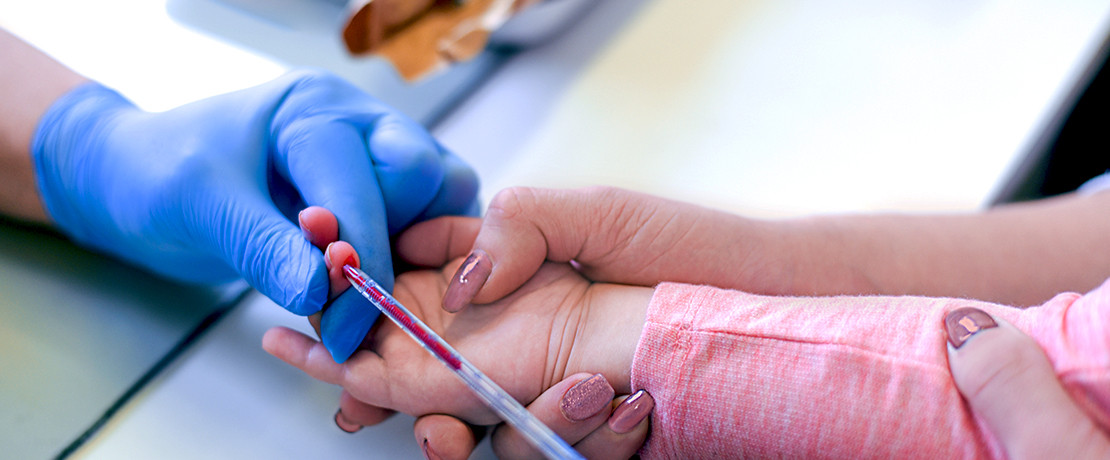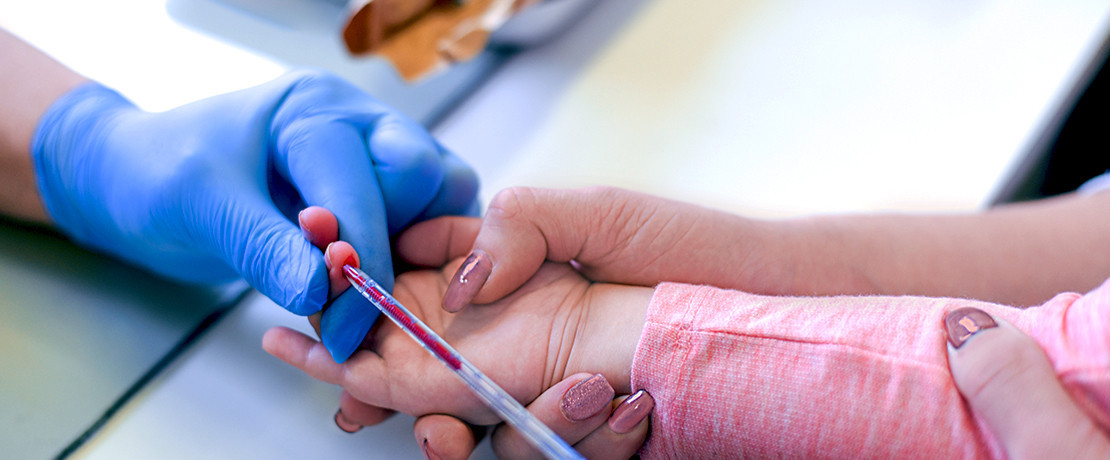Thalassemia and Hematology Center
Thalassemia and hemoglobinopathy are the most common genetic disorders in Thailand, with 30% of all Thais being carriers of such conditions. The causes of these blood disorders are genetic abnormalities which affect the body’s ability to regulate the production of protein (globin) found in red blood cells. Globin is a major protein component of hemoglobin. Hemoglobin is essential for carrying oxygen to all cells in the body. If a mother or father carries abnormal globin genes, it is likely that they will be transferred to their children. Where these genes are passed on by only one parent the child will become a carrier of the disease, meaning they will display no symptoms such as anemia or hepatosplenomegaly. However, in cases where both parents transfer the faulty genes – which combine to increase in severity – their offspring will suffer from thalassemia. Symptoms of thalassemia include anemia, hemochromatosis, and the body attempting to produce excessive amounts of red blood cells, resulting in hepatosplenomegaly. Patients suffering from anemia will require regular blood transfusions. Some cases will be so severe that the child will not survive the fetal stage.
Thalassemia can be categorized into two types:
- Alpha-thalassemia
- Beta-thalassemia
If a person receives either an alpha-thalassemia or beta-thalassemia gene from a single parent, that person will be an alpha-thalassemia carrier, a hemoglobin Constant Spring (Hb CS) carrier, a beta-thalassemia carrier, or a hemoglobin E carrier. However, those unfortunate enough to receive the faulty genes from both mother and father – whether they are alpha- or beta-thalassemia – will end up suffering from thalassemia in one of the following forms: hemoglobin H disease, hemoglobin Barts disease, beta-thalassemia or hemoglobin E beta-thalassemia disease.
Those who might be suspected of having thalassemia or being a carrier include:
- Those suffering from anemia and who might also be diagnosed with hepatosplenomegaly
- Those with rapidly deteriorating anemia when suffering from a serious fever
- Those with a family history of hepatosplenomegaly or anemia
- Women who have given birth to a child who is a thalassemia carrier or sufferer
- Women who have experienced a miscarriage resulting from fetal hydrops
- Those who have been diagnosed with smaller-than-normal red blood cells (MCV < 80 fL)
- Those who have returned a positive result from an osmotic fragility (OF) test or dichlorophenolindophenol (DCIP) precipitation test.
If any of the aforementioned indicators apply to you, it is recommended that you seek diagnosis to confirm whether you are suffering from thalassemia or are a carrier of the disease. This screening should also extend to partners you plan to marry or start a family with, in order to inform your subsequent choices with regard to pregnancies or having children. Such screening will provide a risk assessment in terms of how likely it is that your children will suffer from the disease or be carriers. Obstetricians have methods of telling whether an unborn child is suffering from severe thalassemia that enable them to help parents make plans regarding postnatal treatment.
What to do if you have thalassemia genes
People who have been diagnosed as carriers of thalassemia need not make any alterations to their daily lives, nor do they require any medication. However, those who have been diagnosed as suffering from the disease will have symptoms specific to the individual. Individuals experiencing anemia or hepatosplenomegaly may require regular blood transfusions and chelating drugs aimed at removing excess iron from the body. Some thalassemia sufferers may require spleen removal surgery (splenectomy) in order to reduce the damage to red blood cells.
Individuals with less severe cases may only require treatment focused on relieving certain symptoms, such as taking folic acid medication. However, they will not need iron supplements as their iron levels are already high.
Although thalassemia may seem like an intimidating disease, the truth is that careful self-management can mean that the effect it has on your life may be minimal. A fulfilling lifestyle is quite possible despite suffering from the disease.
Currently available treatments include bone marrow or stem cell transplants, which are capable of curing thalassemia altogether. Additionally, for infant patients who are unable to find a suitable bone marrow donor among their family members, there is an option available called haploidentical bone marrow/stem cell transplantation, which can significantly increase their chances of being cured.


